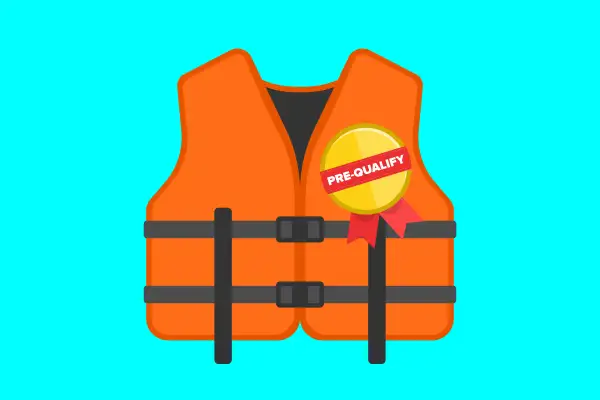Why It’s Worth Pre-Qualifying for Life Insurance

You've probably heard of pre-qualifying for a mortgage. You might not know you can also save time and money by getting pre-qualified for life insurance.
Insurance “pre-quals” are useful in a different way than those for credit. You get pre-approved for loans mainly to minimize the odds of missing out on the house or car you want because another would-be buyer, with financing already secured, beats you to the punch. That advantage doesn’t apply to life insurance, since there’s no such thing as falling heads-over-heels in love with a policy that only a single buyer can get.
Instead, getting pre-qualified for insurance can save you time on applications and approvals and allow a broker or independent agent to shop the market for you before you submit a formal application. It involves having the insurance pro shop the market on your behalf, sometimes after you sign off on having them access such data as your medical records.
Here’s more on why and how to seek pre-qualification if you’re in the market for life insurance.
What is pre-qualification?
Like using brokers and comparison websites to streamline auto and home insurance buying, pre-qualification allows you to have a single service provider -- an independent life-insurance agent or broker -- to take your personal information and use it to shop you to multiple insurers. That can reduce or even eliminate the time and hassle of shopping from company-to-company, using their dedicated websites or agents.
The process shouldn’t involve a fee or require a purchase. If your current broker seeks to impose either, consider switching to another insurance professional.
How does pre-qualification work?
In addition to having you submit basic identifying information to them, your “pre-qualifier” may request permission to access your medical records -- and, in turn, release them to one or more insurers, with your approval.
Such data releases, from something called the Medical Information Bureau (MIB), are increasingly common, in part because they can reduce or even eliminate the need for medical exams -- which is especially welcome during the pandemic.
Your agency or broker may use the data for its own pre-qualification process, ahead of submitting any data to insurers. For example, Assaf Henkin, the President & COO of online broker Sproutt, says their approach involves “checking the individual’s records to make sure that health-wise, and financially, they qualify.” If they do, he says, he works with “specific partners that went through a due-diligence process with us to verify that they trust us when we bring them specific customers.”
In other cases, your pre-qualifier submits data to one or more insurers, to seek approval of a maximum amount of coverage and a premium quote from each. Again, this spares you the trouble of doing that, and allows you the benefit of the expertise of the broker or agent in knowing the companies most likely to green-light you and to offer a competitive premium.
That, in turn, can allow preliminary pricing -- pending confirmation through a formal process -- to be estimated, and confidence created that that the eventual application will be approved.
How pre-qualifying can protect you
A pre-qualifier can also limit possible damage to you as a life-insurance customer in several ways. The first is by insulating you from the possibility of errors (or worse) in your formal application, by first submitting your data in an informal way -- often without even identifying you.
Because you don’t initially submit a formal application, wrote New York City life-insurance agent KJ Prince, you limit the risk that material that isn’t accurate, for whatever reason, will hurt you, now or later. “Concealing or withholding information could land you on a list of bad-faith insurance applicants — and insurance companies share information about you and your application history to better their odds of catching dishonest applicants.”
Pre-qualification allows the agent or broker to walk through the data before making even an informal submission to companies, to help underline -- and to encourage -- the need for completeness and accuracy.
Also, because a formal application only follows a promising reaction to a preliminary submission from the agent or broker, the chances are low of an outright rejection. And such denials can be a black mark on your record, writes Prince, just as they are when you’re denied a credit card you applied for.
“Credit card companies all know if you’ve ever been turned down for a credit card,” writes Prince. And because life insurers share data in much the same way as card issuers, “if you’ve been denied life insurance in the past, your new application could be impacted.”
Prequalification helps you avoid this, he continues “by anonymously submitting information to insurance company underwriters before submitting an official life insurance application.”
More from MONEY:
A 3-Step Life Insurance Checkup You Should Do Now
15 Best Life Insurance Companies
3 Life Insurance Moves To Consider As COVID-19 Surges
